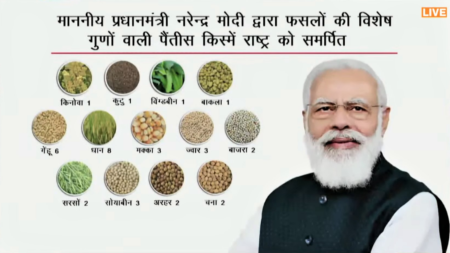- Ancient potato.
- Ancient pottery.
- Ancient dog breed?
- Oldish botanical illustrations.
- Old argument: diversification or specialization?
- Even older argument: what’s a species?
Brainfood: Commons edition
- Seeds of resilience: the contribution of commons-based plant breeding and seed production to the social-ecological resilience of the agricultural sector. A seed production commons is good for agroecology and resilience. At least in the German-speaking vegetable sector. Yeah, but give them an inch…
- Crop Diversity Management System Commons: Revisiting the Role of Genebanks in the Network of Crop Diversity Actors. …and they’ll take a mile.
- Changing patterns in genebank acquisitions of crop genetic materials: An analysis of global policy drivers and potential consequences. Maybe it would be good if they took that mile.
- Seeds as natural capital. This is the mile we’re talking about. It’s worth fighting for.
- A Critical Review of the Current Global Ex Situ Conservation System for Plant Agrobiodiversity. II. Strengths and Weaknesses of the Current System and Recommendations for Its Improvement. It has become a really complicated mile.
- Uses and benefits of digital sequence information from plant genetic resources: Lessons learnt from botanical collections. And this makes it even more complicated.
- Impact of climate change on biodiversity and food security: a global perspective—a review article. Yeah, but look what happens if we don’t do something.
- Agrobiodiversity Index scores show agrobiodiversity is underutilized in national food systems. And we’re certainly not doing enough.
- Endangered Wild Crop Relatives of the Fertile Crescent. See what I mean?
- Crop diversity is associated with higher child diet diversity in Ethiopia, particularly among low-income households, but not in Vietnam. Sure, I know it’s complicated…
- Insights into the genetic basis of the pre-breeding potato clones developed at the Julius Kühn Institute for high and durable late blight resistance. …but just look what’s possible with a little effort…
- Spatiotemporal seed transfer zones as an efficient restoration strategy in response to climate change. …and a little thinking. Well, a lot of effort and thinking.
- Current Advancements and Limitations of Gene Editing in Orphan Crops. And on top of all that, we have this to look forward to.
- Inactivation of the germacrene A synthase genes by CRISPR/Cas9 eliminates the biosynthesis of sesquiterpene lactones in Cichorium intybus L. Well actually it’s already here.
- Living standards shape individual attitudes on genetically modified food around the world. Maybe if they were in a commons? Wait, isn’t this where we started?
- Waive CRISPR patents to meet food needs in low-income countries. It does look like it.
Nibbles: Genebanks everywhere
- Genebanks on the BBC.
- A genebank for the Kahnawa’kehró:non.
- A genebank for Maharashtra.
- A (grapevine) genebank genotyped.
- A (potato) genebank used.
- A new tool for (coconut) genebanks.
Nibbles: Ancient Levant, Guinness cherry, NBPGR, Maize in Africa
- More than milk and honey.
- A very large cherry.
- A very large genebank.
- Let them eat sorghum, Zambian president says.
- That’s not an option for the Hopi.
